Welcome to the AIS Early Learning Centre, where our highly qualified classroom and specialist teachers nurture, recognise and respond to the rapid and significant learning and development which occurs in this early stage. Our staff recognise the importance of developing a love of learning and inquiry early in a child’s development: this cannot be overstated.
The diverse range of learning styles, needs and interests are well catered for in our warm, enriching and caring environment, where children feel safe, valued and happy as they explore exciting new ways to learn, play and find their feet at the beginning of this very special educational journey. The refurbishment of our ELC rooms is extensive and includes new flooring, furniture, indoor learning resources, STEM exploration area, refurbished gross motor/Perceptual Motor Program area, new specifically designed outdoor learning area and playground. These resources further complement the excellent facilities needed to nurture our children to develop a curiosity and enthusiasm for learning.
Our highly trained and caring teachers devote focused time and effort to observing and listening to their students so that every child’s unique strengths, interests, and abilities are understood. Based on these observations, learning and teaching episodes are developed with stimulating experiences designed to provoke their interest and enrich the learning and development of all ELC children at AIS.
ELC children attend school Monday to Thursday from 8:15 am to 12:15 pm, with classrooms open from 8:00 am. To enrol, children must be four years old by August when they enter ELC.
1. Our Philosophy of Early Childhood Education
The Philosophy of the Early Learning Centre (ELC) at AIS is based on an image of children as creative, capable and intrinsically motivated to explore and discover the world around them.
We believe that each child and family is unique and integrate the diverse cultures of children and families in our learning. We foster a love of learning and believe that the role of our teachers is to provide a stimulating and responsive environment. We work in collaboration with children, value their voice and acknowledge them as active participants in their learning. We provide positive reinforcement and encouragement to support children’s learning and development.
We believe that a play-based learning environment provides children with opportunities to:
- Imagine and create
- Propose and reason
- Master skills
- Have meaningful experiences
- Express thoughts and ideas
- Solve problems
- Challenge themselves
- Engage in reflective thinking
- Build meaningful relationships
We believe that children need a strong sense of wellbeing for good physical health, happiness and a positive sense of self. We believe that a child’s positive physical, social, emotional and spiritual wellbeing impact significantly on their ability to become lifelong learners.
2. Learning Program
The ELC at AIS is guided by the Queensland Kindergarten Learning Guidelines' vision to provide specificity for children's learning across the year before starting school, recognising that children bring with them diverse identities and backgrounds. It acknowledges that parents/carers are children's first teachers and values the vital role families play in children's lives and their ongoing learning.
Teachers support children’s learning through positive and responsive interactions, engaging materials and learning environments which reflect the interests and needs of the children. Children engage in play-based learning and child-led projects that stimulate learning, exploration and social connections. Play-based and project-based learning support the development of essential Early English and Early Mathematical skills required in Prep.
Our teachers plan rich open-ended learning experiences including literacy, language, literature, maths, science, sensory, dramatic, imaginative, visual arts, music and movement, physical, self help and environmental awareness experiences in an engaging and inclusive way. Teachers make children’s learning visible using learning portfolios, with learning experiences responsive to children’s needs and interests. Learning is documented using children’s ideas and dialogue through photo and digital portfolios, class discussions, drawings and other artistic mediums displayed in the classroom.
3. Our Goals
Our commitment as educators is to:
- Develop, implement and evaluate the teaching program.
- Respect and value children, parents and other staff in the ELC.
- Foster positive relationships with children and their families and become co-learners with them.
- Implement responsive play based learning experiences for children.
- Continually develop and track individualised learning goals.
Our commitment for our children is to:
- Develop a strong sense of belonging by providing a safe and secure environment.
- Develop emotional resilience and confidence.
- Foster a sense of wonder and curiosity.
- Foster open and respectful communication.
Our commitment as a community is to:
- Deliver a learning program that encourages children and families to contribute and share the experiences they value with the teachers.
- Celebrate and embrace diversity.
- Embed home cultural practices in the classroom.
- Celebrate important family and cultural events.
- Encourage family participation and involvement.
4. Curriculum
Teaching and learning is based on the knowledge and understanding of the Queensland Kindergarten Learning Guidelines.
Teachers plan and support balanced learning towards five learning and development areas:
- Identity
- Connectedness
- Wellbeing
- Active Learning
- Communicating
5. Principles
The Queensland Kindergarten Learning Guideline Principles promote continuity in children's learning and provide the foundation for a successful transition to school. These principles are:
- High expectations, equity and respect for diversity
- Respectful relationships
- Collaborative partnerships
- Effective pedagogies
- Reflective practice and professional decision-making
6. Intentional Teaching Practices
Intentional teaching is an active process and a way of relating to children that embrace and builds on their strengths, interests, ideas and needs. It requires teachers to be purposeful in their decisions and actions.
Intentional teaching extends children's thinking, builds deep understanding and occurs in emergent and planned experiences. Teachers use a range and balance of strategies to cater for an promote all children's learning.
7. Assessment and Reporting
We complete regular assessments of children’s learning and use this information to ensure that future planning reflects identified needs. Student progress is reported throughout the year. Assessment in ELC takes a variety of forms:
- Baseline tests
- Early childhood developmental screens
- Individualised learning goals and observations
- Project books
- Learning portfolios
- End-of-Year Transition Statement
- Parent/Teacher interviews














